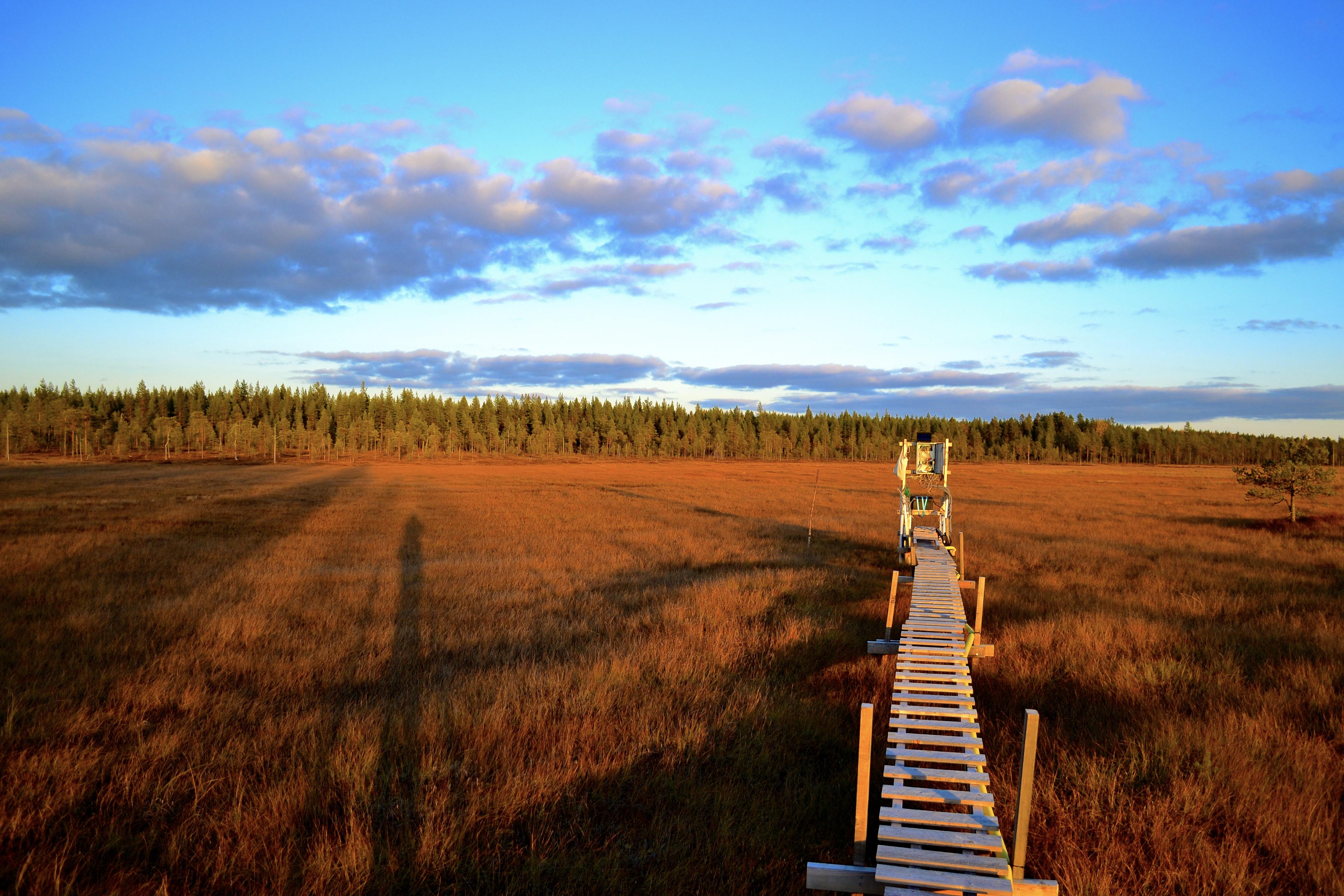Peatlands - a major soil carbon pool?
Submitted by editor on 1 April 2021. Get the paper!
Get the paper!Cover Photo Credit: Audrey Campeau/ imaggeo.egu.eu/ CC BY 3.0
The authors of "Rewiring of peatland plant–microbe networks outpaces species turnover" would like to share some additional thoughts with you. What are your thoughts?

Speculations and Alternative Viewpoints:
Interactions between plant and microbial communities in peatlands are rather complex, yet pivotal for the functioning of the ecosystem. Here we have assessed interactions between plant and microbial communities along an environmental gradient using co-occurrence modeling. Such approach does not necessarily allow the interpretation of causal, or functional, links between both communities, but gives great insight into the co-response of species and communities to changes in environmental and climatic conditions. Indeed, turnover in plant and microbial communities may be caused by a different set of environmental drivers. Such contrasting responses to enviro-climatic drivers may have caused the rewiring as we have observed. The authors strongly believe that the observed mismatch in alpha diversity between plant and microbial communities are consequential for the functionality of the ecosystem on the long-term.
Elsewhere, B.J.M.R., V.E.J., B.H.S., and M.M. have explained that the functional trait composition of the vegetation in Sphagnum-dominated peatlands remained unaffected by enviro-climatic change, despite turnover in the plant taxonomic composition. From that research it was concluded that changes in enviro-climatic conditions may have limited effect of the functionality of peatlands. Based on the results from this research, B.J.M.R. and A.V. believe that the weakened linkages with increased temperate and nutrient deposition may aggravate the overall robustness of peatland ecosystems to future anthropogenic pressures.

Comment below or on Social Media ;)
AUTHORS: Bjorn J. M. Robroek, Magalí Martí, Bo H. Svensson, Marc G. Dumont, Annelies J. VeraartVincent E. J. Jassey